Normal Tracing Shapes worksheets activities for Ages 3-8
9 filtered results
-
From - To
Welcome to our collection of Normal Tracing Shapes worksheets, specially designed for children aged 3 to 8! These engaging activities help young learners develop essential fine motor skills, hand-eye coordination, and shape recognition through enjoyable tracing exercises. Your child will have fun tracing a variety of shapes, including circles, squares, and triangles, while enhancing their pencil grip and control. Ideal for both classroom and home use, our worksheets provide a perfect balance of educational value and entertainment. Download your free printable worksheets today and embark on an exciting journey of creativity and learning with your little ones!
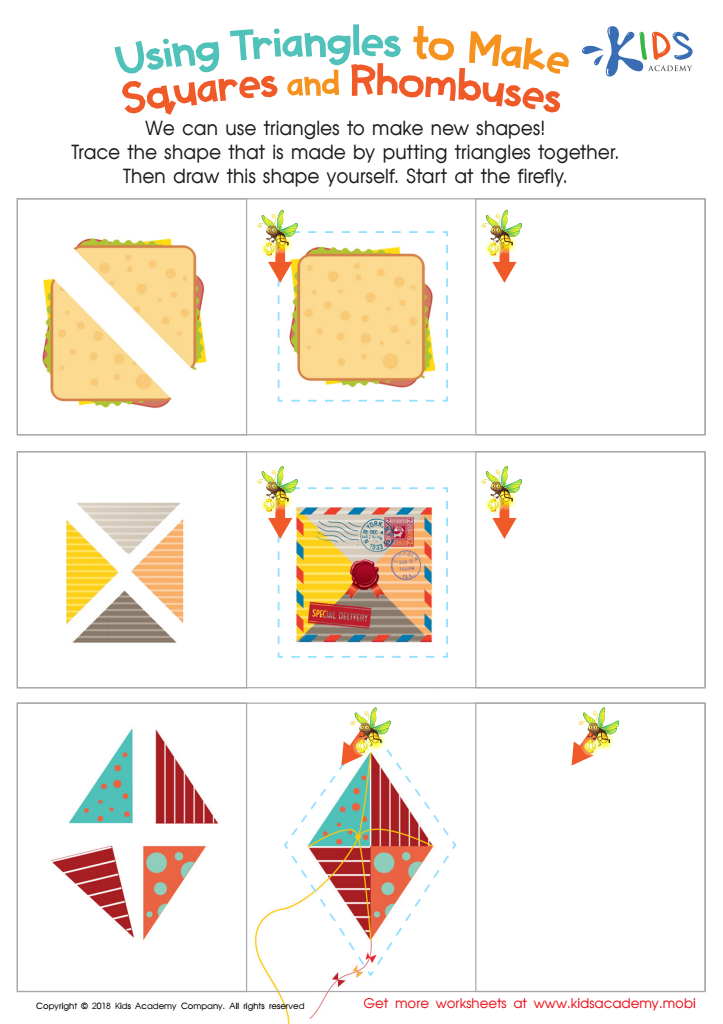

Using Triangles to Make Squares and Rhombuses Worksheet


Drawing a Triangle Worksheet
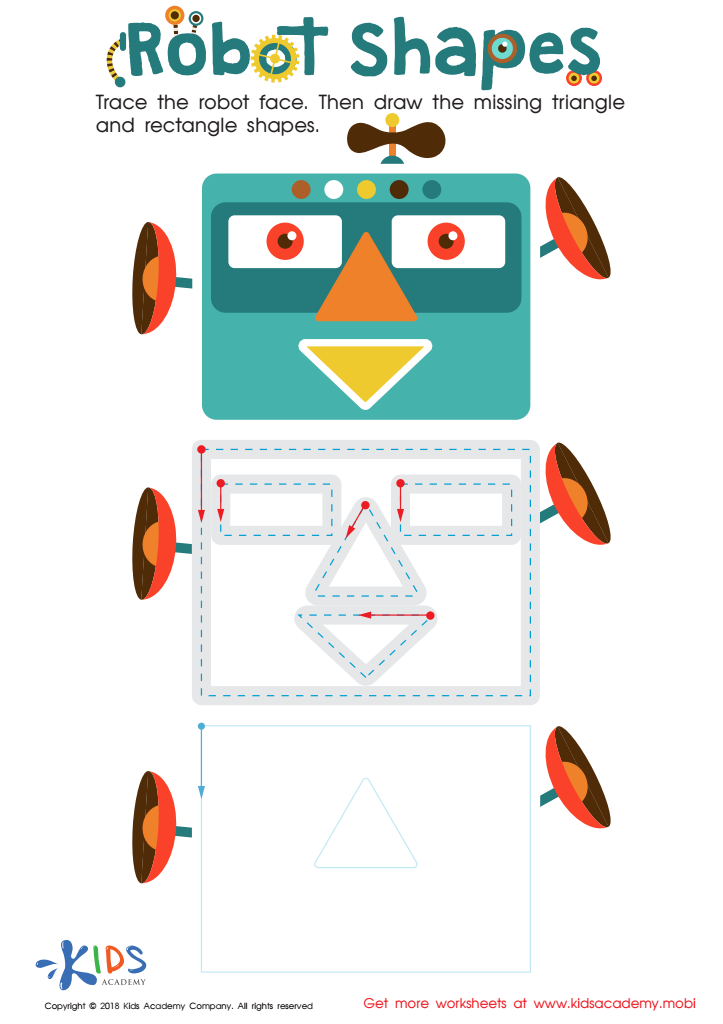

Robot Shapes Worksheet
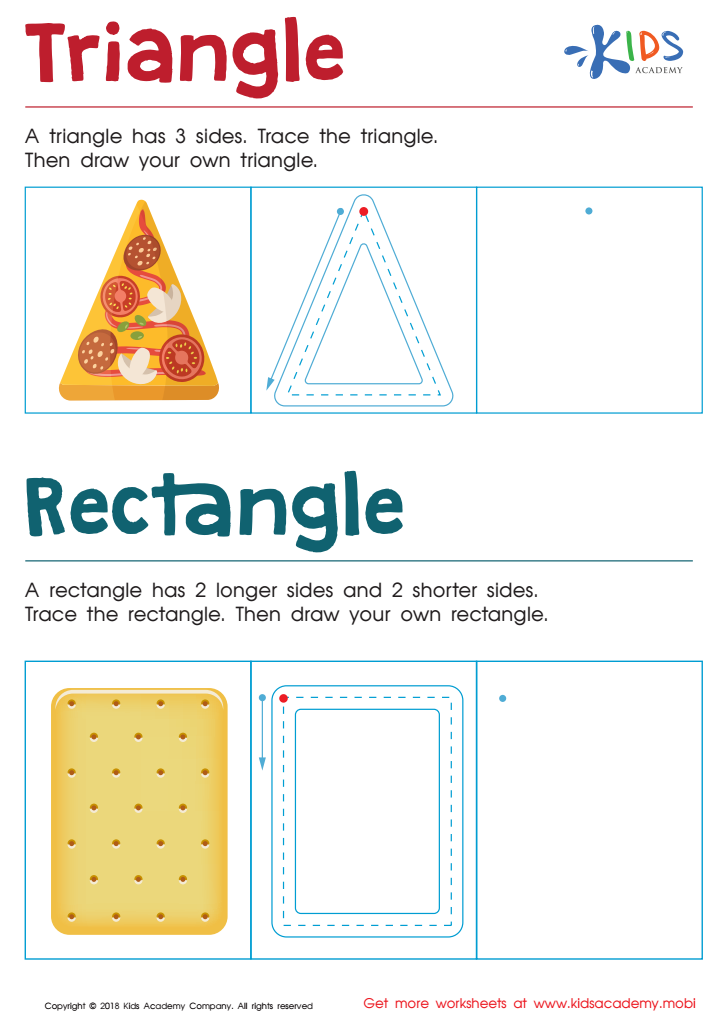

Triangle Rectangle Worksheet
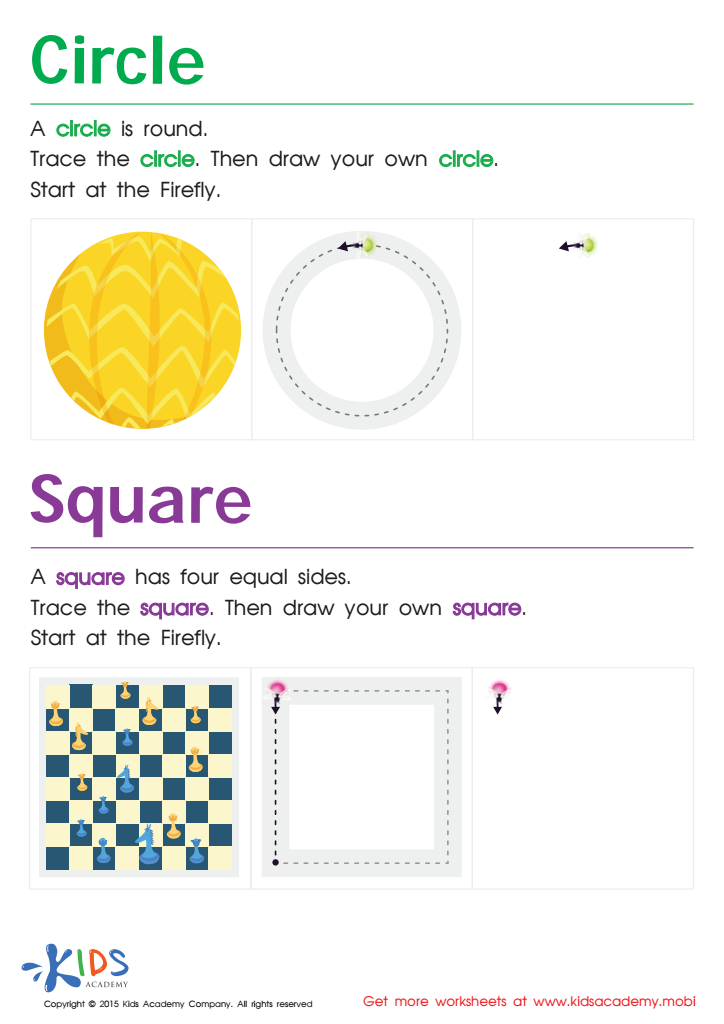

Trace And Draw a Circle And a Square Worksheet
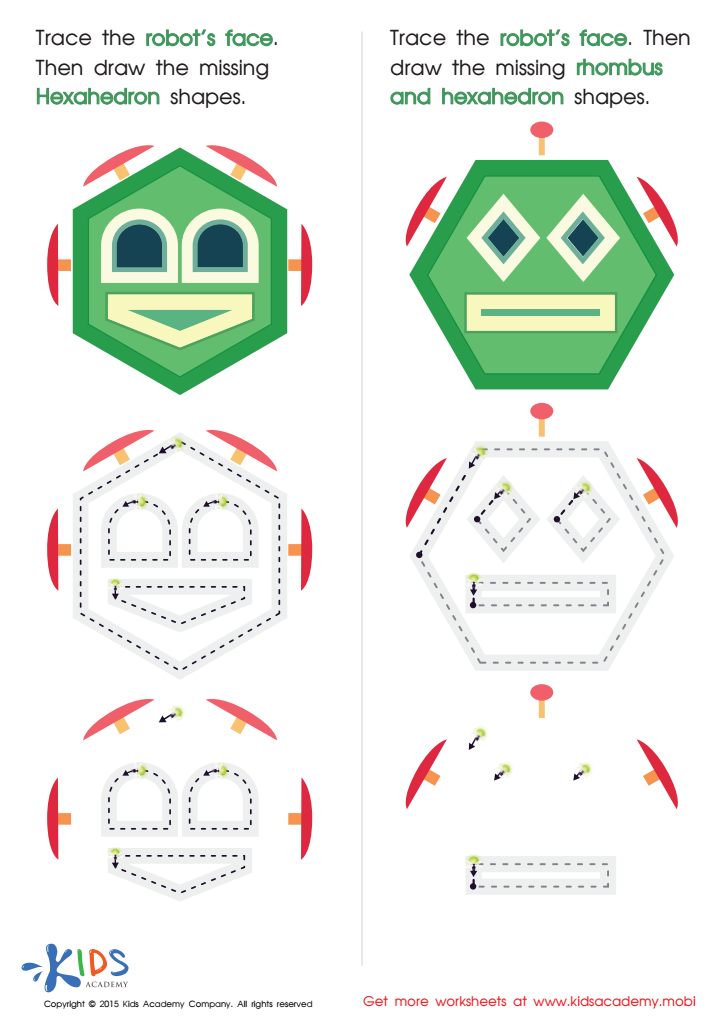

Practice Drawing Hexahedrons And a Rhombus Worksheet
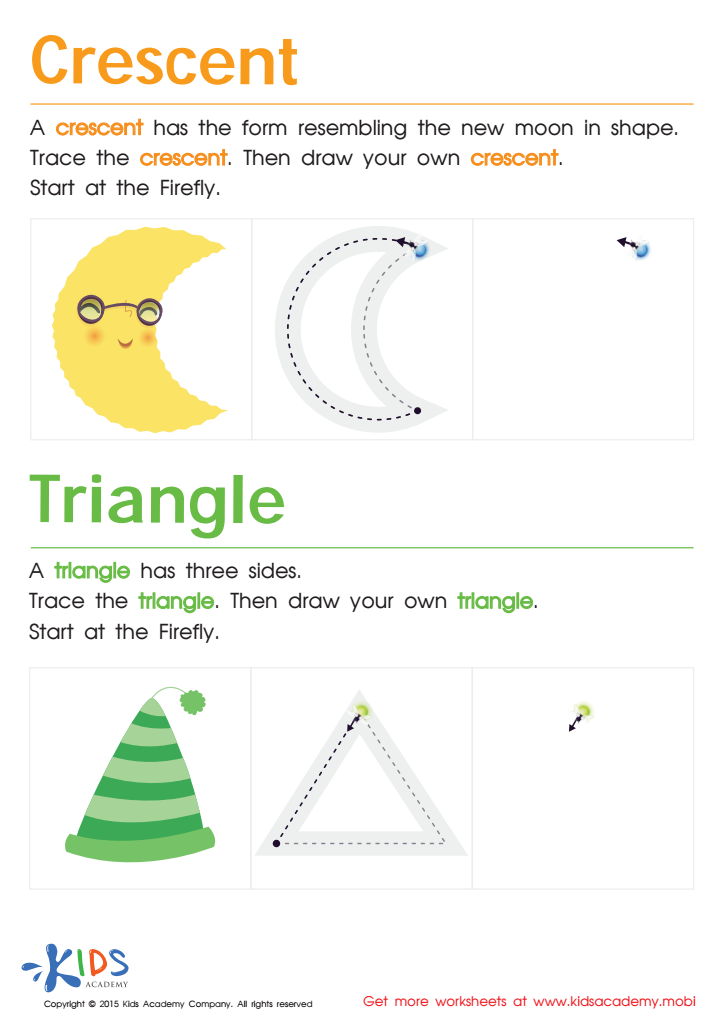

Learning to Draw Crescents And Triangles Worksheet
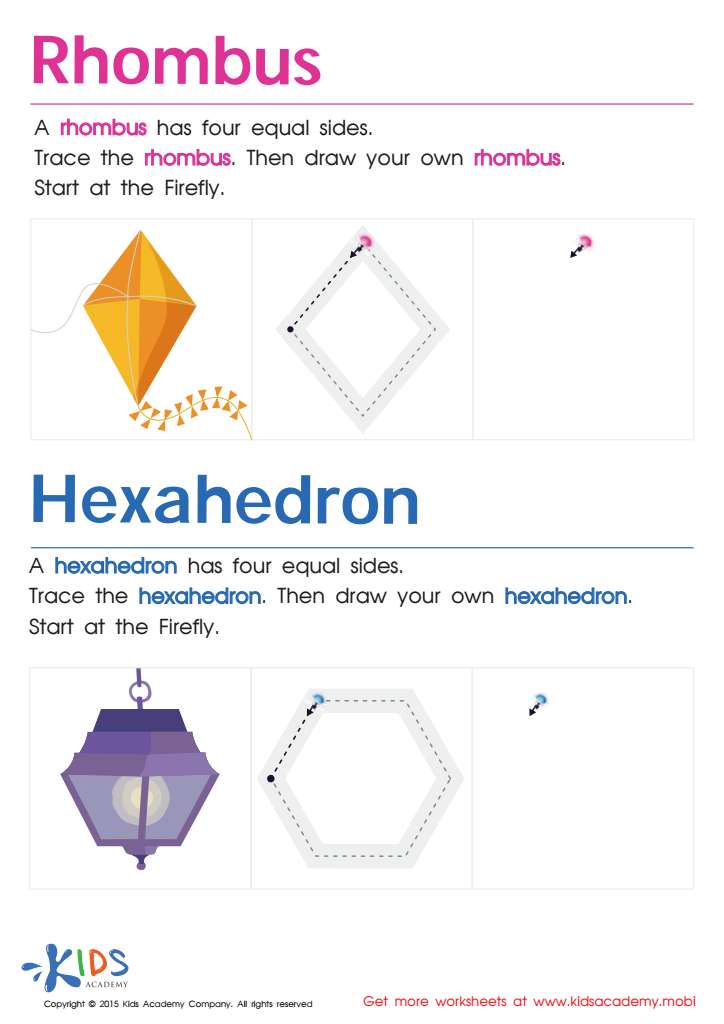

Draw a Rhombus And a Hexahedron Printable
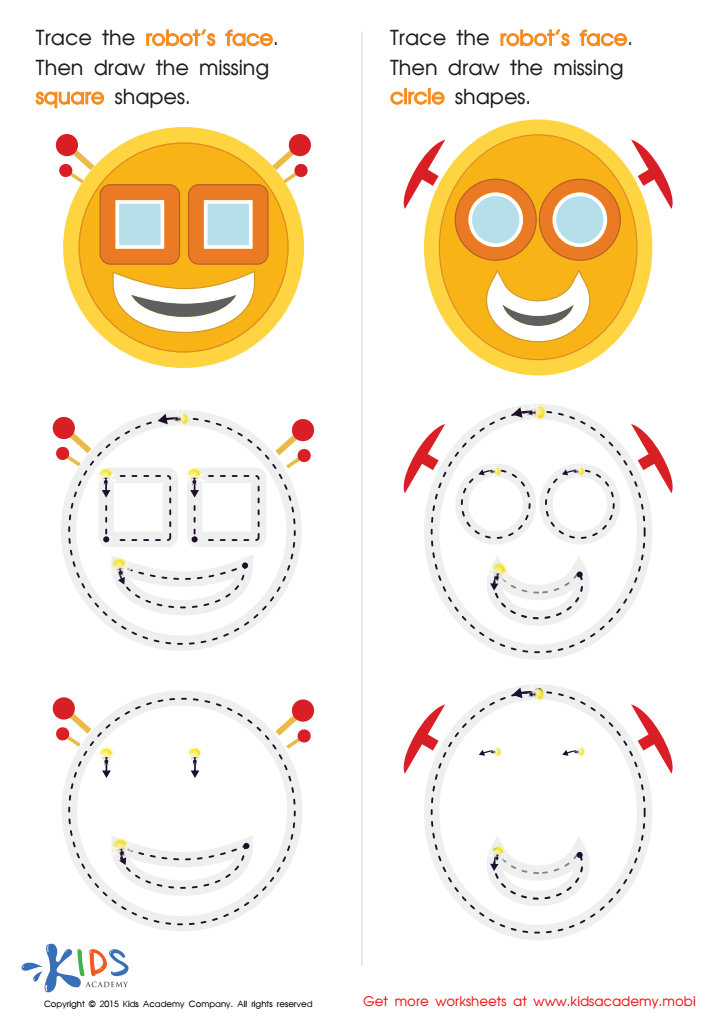

Practicing to Draw Circles And Squares Printable
Normal tracing shapes activities are crucial for children aged 3 to 8 as they lay the foundation for essential skills. First, these activities enhance fine motor skills, which are critical for tasks such as writing and self-care. Tracing shapes helps children build hand strength and improve hand-eye coordination, which are fundamental for their overall development.
Furthermore, tracing shapes supports cognitive development by familiarizing children with fundamental geometric shapes and spatial awareness. This understanding is vital, as it forms the basis for problem-solving and critical thinking skills encountered later in math and science. When children can visually and physically manipulate shapes, they are better equipped to understand more complex concepts, such as symmetry, patterns, and eventually, geometry.
Additionally, engaging in tracing activities can foster self-esteem and concentration. Children experience a sense of accomplishment as they successfully trace shapes, encouraging perseverance and focus—skills that translate into their academic journeys. For parents and teachers, incorporating tracing shapes activities into learning environments not only helps children develop crucial motor and cognitive skills but also creates enjoyable and interactive learning experiences that foster a love for learning. Ultimately, these foundational skills contribute to lifelong academic success and personal growth.
 Assign to My Students
Assign to My Students
















